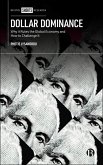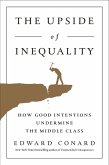In the 1990s, a vision emerged of a frictionless world of globalization in which the West would become ever richer on the basis of a tech-based service economy, all underpinned by a rules-based liberal international order. It became the basis for the mainstream politics of centre-left and right.
Philip Pilkington argues that this vision was always delusional and is now dying. It is based on a doctrinaire and unrealistic form of liberalism and has given rise to hollowed-out financialised economies and disintegrating societies that can barely even reproduce their population or meet their energy needs. The US and UK find themselves ill-equipped to compete with China and other non-liberal states within an emerging post-liberal order in which what really matters is industrial capacity, realpolitik and military strength. Only by abandoning our liberal delusions and advancing our own brand of hard-headed post-liberalism can the West survive.
No clear-sighted observer of contemporary geopolitics can afford to miss this bracing diagnosis of the West's malaise and bold agenda for renewal.
Philip Pilkington argues that this vision was always delusional and is now dying. It is based on a doctrinaire and unrealistic form of liberalism and has given rise to hollowed-out financialised economies and disintegrating societies that can barely even reproduce their population or meet their energy needs. The US and UK find themselves ill-equipped to compete with China and other non-liberal states within an emerging post-liberal order in which what really matters is industrial capacity, realpolitik and military strength. Only by abandoning our liberal delusions and advancing our own brand of hard-headed post-liberalism can the West survive.
No clear-sighted observer of contemporary geopolitics can afford to miss this bracing diagnosis of the West's malaise and bold agenda for renewal.
Dieser Download kann aus rechtlichen Gründen nur mit Rechnungsadresse in D ausgeliefert werden.









